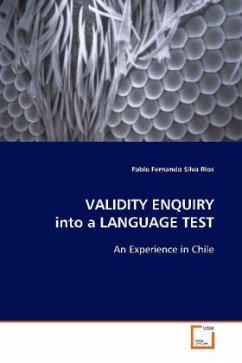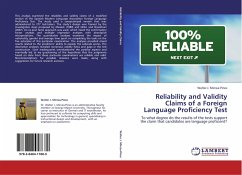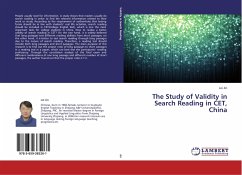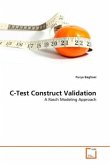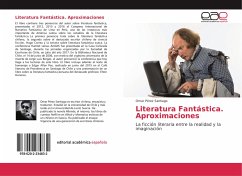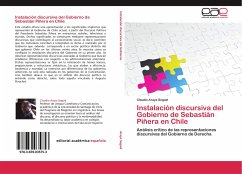Is this test actually assessing what it is supposed
to be assessing? , a key question that is frequently
neglected or taken for granted. However, when looking
into tests and results more carefully, we often
realize that the answer is No, it doesn t . Test
validity can be a challenging issue. This research
project aims at finding evidence to sustain the
validity of using the scores of a proficiency test,
the Antofagasta Test (AT), to infer the test takers
English language ability. The methodology adopted
includes the statistical analysis of test
performance, including test reliability; content
validity and construct validity. Findings suggest
that the AT s scores may be validly used for its
purpose and context to an acceptable degree despite
some deficiencies such as test difficulty, design and
reliability, and full agreement with contents and
constructs.
to be assessing? , a key question that is frequently
neglected or taken for granted. However, when looking
into tests and results more carefully, we often
realize that the answer is No, it doesn t . Test
validity can be a challenging issue. This research
project aims at finding evidence to sustain the
validity of using the scores of a proficiency test,
the Antofagasta Test (AT), to infer the test takers
English language ability. The methodology adopted
includes the statistical analysis of test
performance, including test reliability; content
validity and construct validity. Findings suggest
that the AT s scores may be validly used for its
purpose and context to an acceptable degree despite
some deficiencies such as test difficulty, design and
reliability, and full agreement with contents and
constructs.

